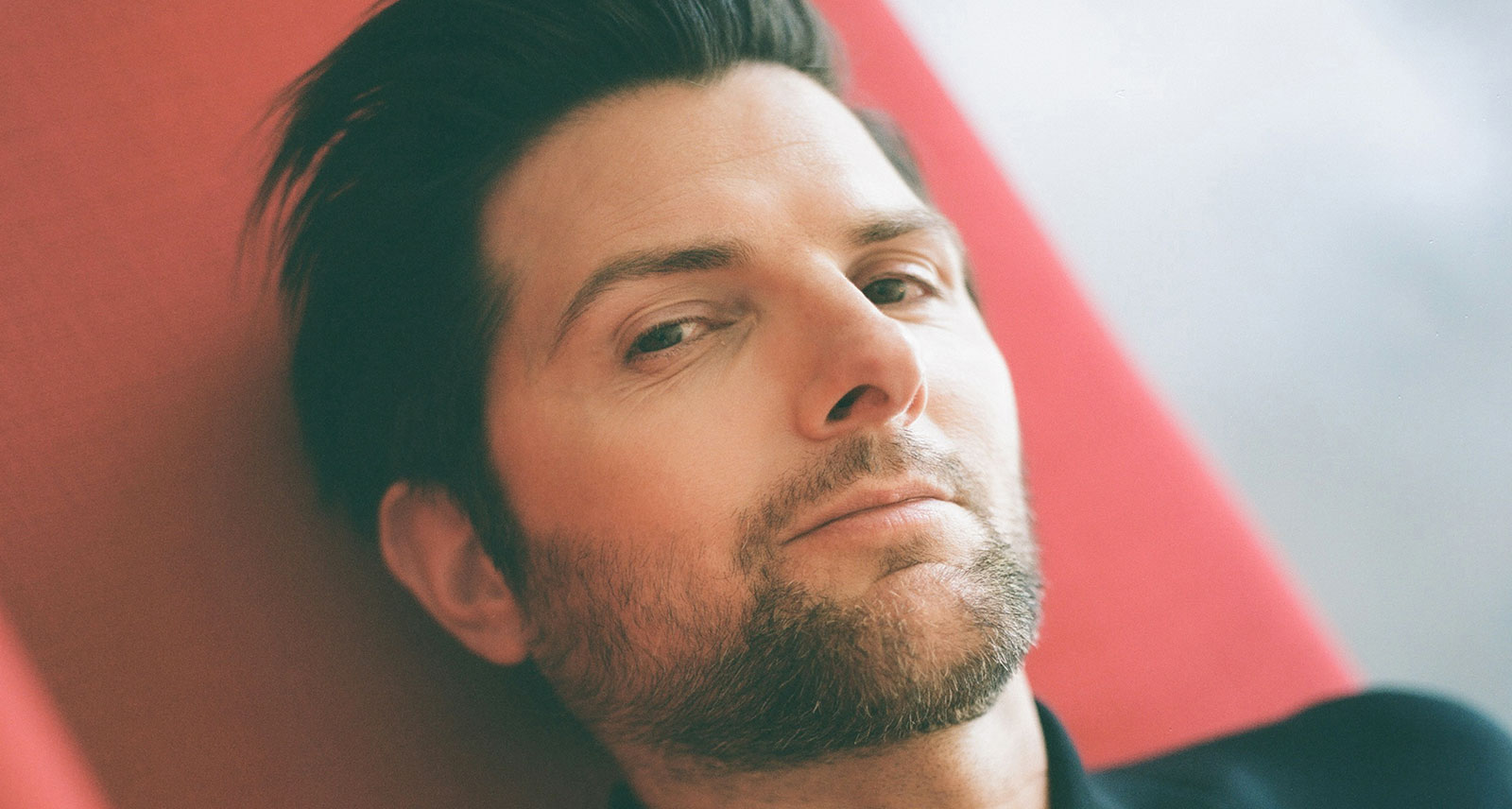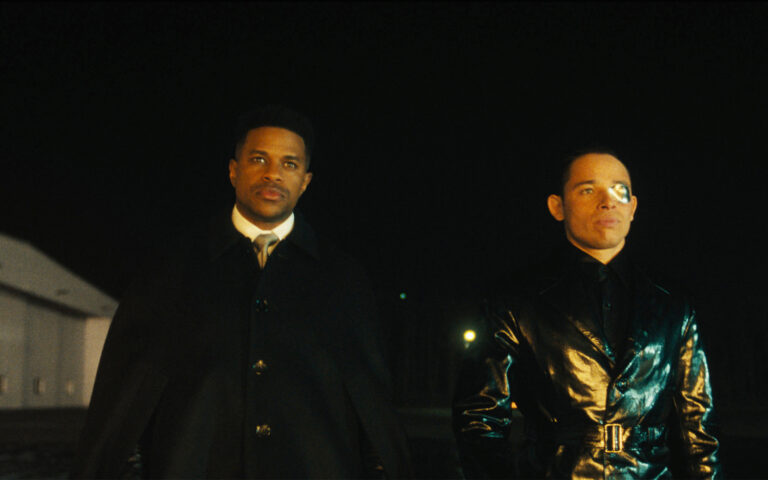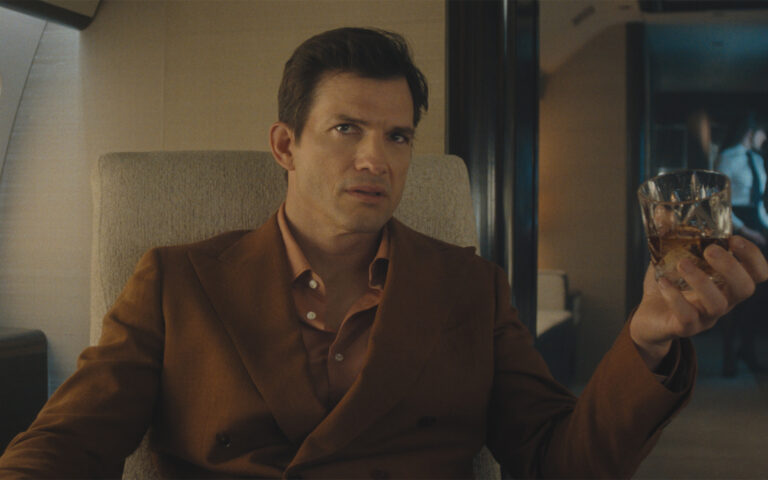It was the second week of February, and Adam Scott was freaking out. The comedian, actor, and prodigious podcaster was bracing himself for the forthcoming release of Severance, the darkly comic streaming series that stars Scott (twice, but we’ll get to that in a second). “Once the billboards went up,” Scott, 49, explains from his Los Angeles home, “I knew there was nothing I could do. I felt really exposed. I didn’t know how people would react to the show, and if this was going to be the end of my career.”
Severance has a high-concept sci-fi premise in the tradition of The Twilight Zone, Black Mirror, or the works of Philip K. Dick. Scott stars as Mark, a former history professor mourning his wife’s sudden death in a motor vehicle crash. Unable to manage his grief, he tries to escape from it. Mark volunteers for an experimental procedure in which his work memories are “severed” from the rest of his waking life. When the elevator crosses a certain threshold in his nondescript office complex, one version of Mark switches off and another turns on. Inside the office, he finds himself doing tedious, obscure labour with a team of so-called “severed workers,” each with their own reasons for undergoing the controversial procedure. On paper, Severance may sound a bit cute. But as the plot — and its various sinister complications — unfolds, it is anything but. And for Scott, it was a lot of work.
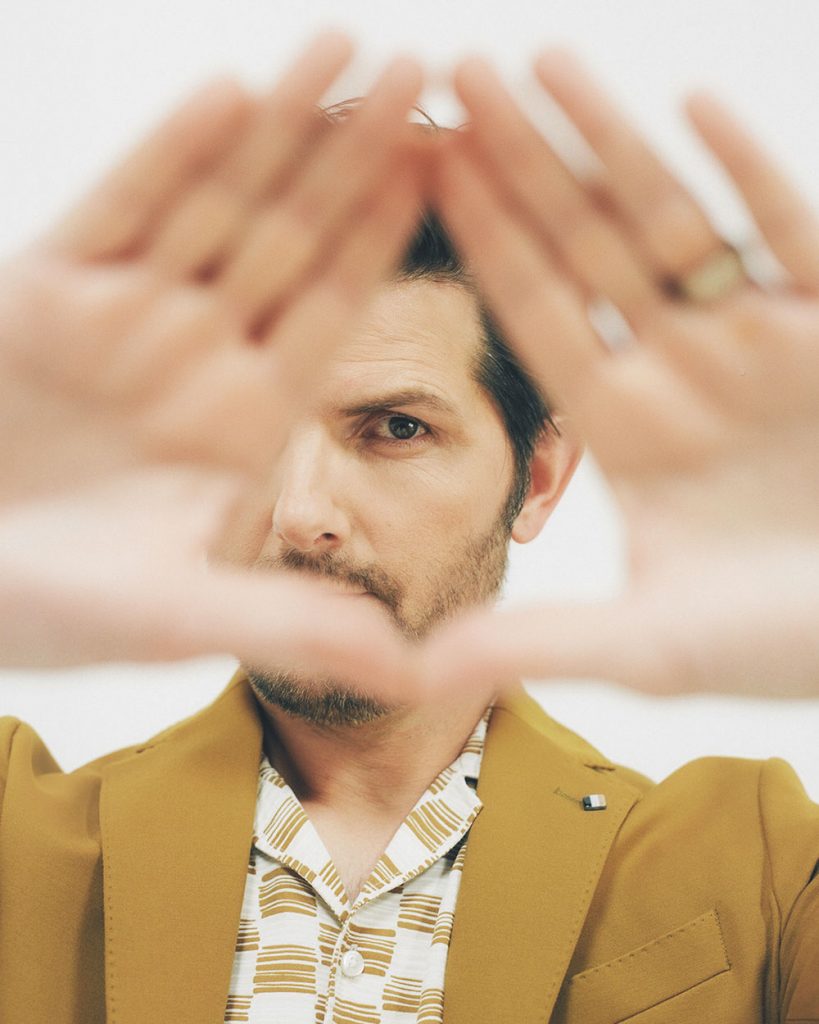
In the series, the inside-the-office and outside-the-office versions are colloquially distinguished by the terms “Innie” and “Outie.” So there’s an “Innie Mark” and “Outie Mark.” Innie Mark is the model corporate employee: perky and chipper, dedicated (or at least happily resigned) to a life spent doing work that he calls “mysterious and important.” Meanwhile, Outie Mark is a mess: first pictured sobbing uncontrollably in his beat-up car, he’s a heavy drinker who spends most nights zoning out alone, working through a bottle in front of the TV. Both are, biologically and physiologically, identical. They look and sound the same. But the similarities pretty much end there. “It really is two different halves of the same guy,” Scott explains. One has 40-odd years of life experience, and all of the joy and sorrow and everything that goes along with a very full life at that age. And then the other one is, for all intents and purposes, two and a half years old.” The dual roles were an interesting challenge. Scott approached it as “a matter of addition and subtraction.” Outie Mark possesses things — personality traits, life experiences — his Innie version does not. And vice versa.
Ben Stiller, Severance’s executive producer (and the director of the bulk of the first season), approached Scott with the series a few years back. What grabbed him was the bracing, high-concept originality. “Ben called me and gave me just the elevator pitch,” he says. “It sounded like one of those big ideas that attracts me as an audience member. That’s the kind of thing I would want to watch, knowing nothing else beyond the basic premise. It’s something that I couldn’t shake and couldn’t stop thinking about.”
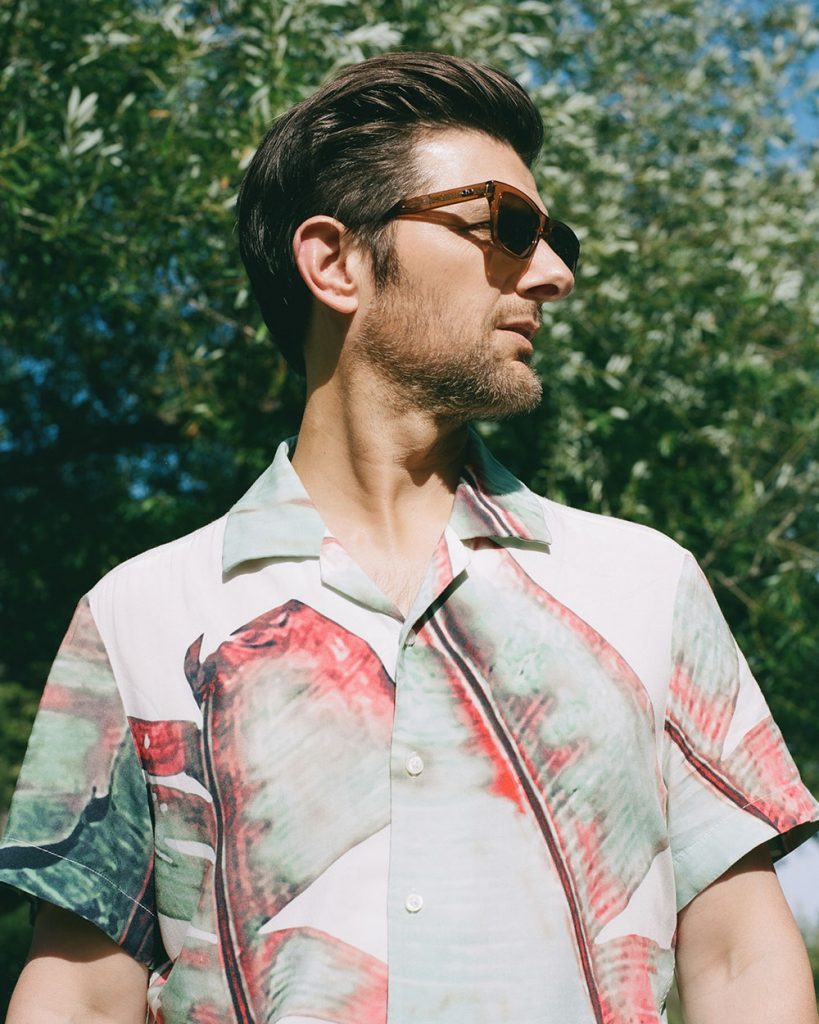
Scott is perhaps best known for supporting roles in TV and film comedies. He played Ben Wyatt, the high-strung auditor and eventual love interest to Amy Poehler’s character, for six seasons on NBC’s Parks and Recreation. He was smirky and smarmy as Derek, Will Ferrell’s prickish sibling in Adam McKay’s absurdist comedy Step Brothers. And he’s proved himself dramatically, playing opposite Reese Witherspoon on HBO’s hit series Big Little Lies. But Severance was something different. Even beyond the premise — equally zany and deeply unnerving; part The Office, part Sartrean No Exit — the show thrust Scott onto centre stage. He was the lead, two times over. The opening credits depict a CGI Scott plopped into a bisected model of his own head. It is, for the most part, The Adam Scott Show. Severance would either succeed or flop on the strength of Scott’s performance. Or performances.
“It sounded like one of those big ideas that attracts me as an audience member. It’s something that I couldn’t shake and couldn’t stop thinking about.”
Hence the nerves. Scott calls himself his “own worst critic.” He’s also aware of the ways in which other critics — and viewers — can totally savage a new series. He was steeling himself for just such an uncharitable response. He was also grappling with his own insecurities. On the cusp of the show’s release, Scott suddenly found himself wondering: What if I suck? “I was proud of it,” he remembers, “but you never know how people will react.”
Scott’s fears were — thankfully — misplaced. Severance has been hailed for its conceit and the way it allegorizes and complicates voguish blather about “work–life balance” (a phrase Scott’s character uses in the pilot episode). The ensemble cast (which includes John Turturro, Christopher Walken, Zach Cherry, Britt Lower, and Patricia Arquette) also earned praise. But Scott was singled out. Vanity Fair praised his “magnetic and layered performance.” Another critic called his dual role as Innie and Outie Mark “remarkable.” By early March, Severance was one of the most talked-about and most watched series on television. “I couldn’t be more pleased and relieved and excited at how people reacted to it and how much people love it,” Scott says.
Certainly, Severance landed at an opportune time. Among its multifarious ripple effects, the ongoing pandemic has reshaped how many of us think about work. For some, working from home has been a boon, trading long commutes for the idler chore or lazily nodding through Zoom meetings in pyjama bottoms. For others, the very same conditions have all but obliterated that coveted work–life balance, as work-from-home staffers struggle to juggle remote-leaning grade schoolers, the endless day-to-day work of managing a household, and, of course, the ambient stress of living through a global pandemic.
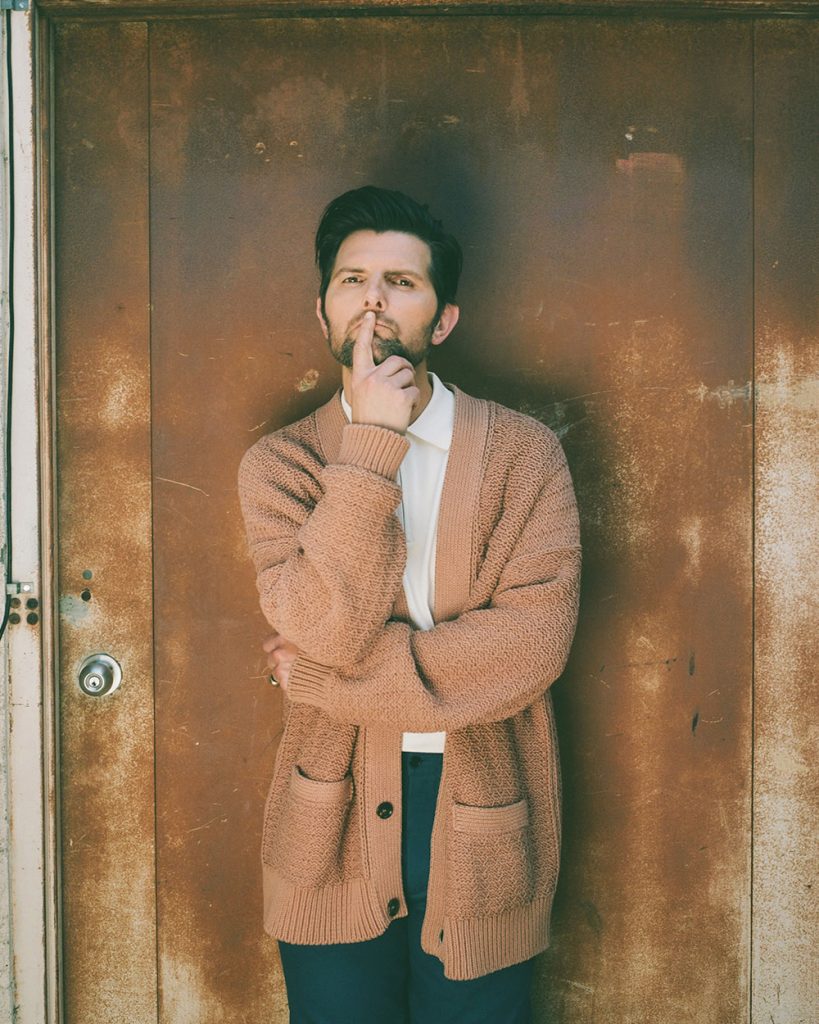
Though it was originally written and pitched years ago (by first-time showrunner Dan Erickson), Severance’s premise no doubt gained salience in the COVID context. Who wouldn’t want to find a way to cleave the tedium of working from the rest of existence? “You never know how something’s going to land,” Scott says, “depending on what’s going on in the world.”
Of course, Severance isn’t some light fantasy about blacking out your brain while hunkering down in a cubicle. Like all great science fiction, the show expounds upon its pithy premise. In time, the Innie Mark — who has his own consciousness and his own hopes and dreams, however limited — begins to imagine a life outside his comically drab work environs. The show does a good job of building out its setting and the implications of its own set-up. What initially seems like a nifty “What if…?” proposition expands to depict a massive conspiracy involving Mark’s employer — the sinister mega-corporation Lumon Industries — whose ambitions in “severing” human beings stretch beyond its greyish office complex. Severance strikes a chord because it takes a seemingly no-brainer question — Wouldn’t it be cool to separate work from the rest of your life? — and responds with a cautious “Well…maybe not so much.”
This immediate, lightning-in-a-bottle resonance distinguishes Severance from another of Scott’s recent projects: the long-awaited revival of the cult comedy series Party Down. The series aired on then-fledgling premium cable network Starz between 2009 and 2010. It starred Scott as Henry Pollard, a depressive failed actor slumming it as a bartender for a Los Angeles catering company staffed exclusively by other wannabes and Hollywood hopefuls.
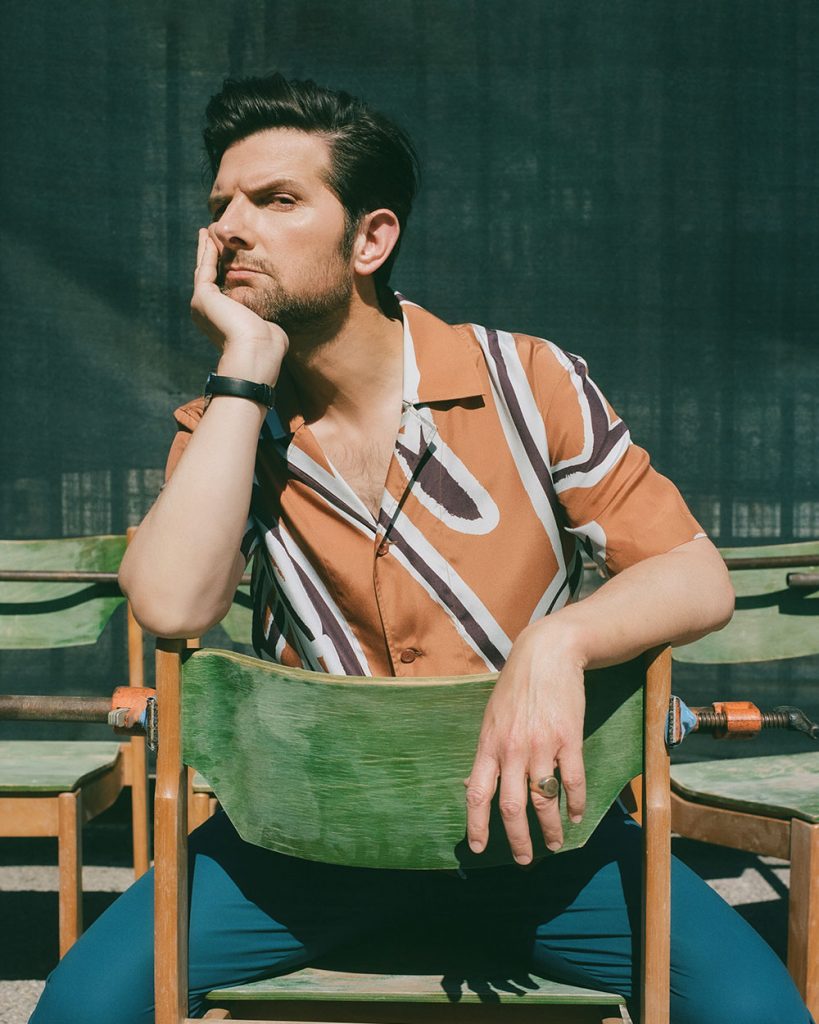
As he drifts from thankless gig to thankless gig, Henry’s waning thespian ambitions are encouraged by his super-cynical co-worker and sometimes girlfriend, Lizzy Caplan’s Casey, an aspiring comedian herself. The show captured the deep ennui at the centre of the Hollywood up-and-comer fantasy, where every waiter or bartender is an aspiring A-list actor or in-demand studio screenwriter. It was also absurdly funny.
But Party Down suffered low ratings, and many of its stars were soon poached by other, bigger, stabler gigs. Co-star Jane Lynch left Party Down for Glee, while Scott himself was drafted to the Parks and Recreation team. Now, after more than a decade of speculation, Party Down is returning for a limited-run mini-series, which Scott recently wrapped filming. “It was really fun,” Scott says of the reunion. “But it was strange. Because it had been 12 years.”
Returning to these characters after so much time away raises some questions. After all, Party Down tended to punish its characters for their doe-eyed delusions. (The perpetually striving-and-failing manager of the catering crew played by Ken Marino, the improbably named Ronald Wayne Donald, was an especially tragic tough-luck case.) Imagining them still stuck slinging watered-down cocktails and hors d’oeuvres after all this time feels, well, a bit cruel. As Scott himself notes with a laugh, “Depression would have killed them!” While he’s tight-lipped on the details of the revival itself, Scott’s confident that the new episodes will be believable. “People persevere, you know?” he says. “It’s all extremely satisfying, I’ll put it that way.”
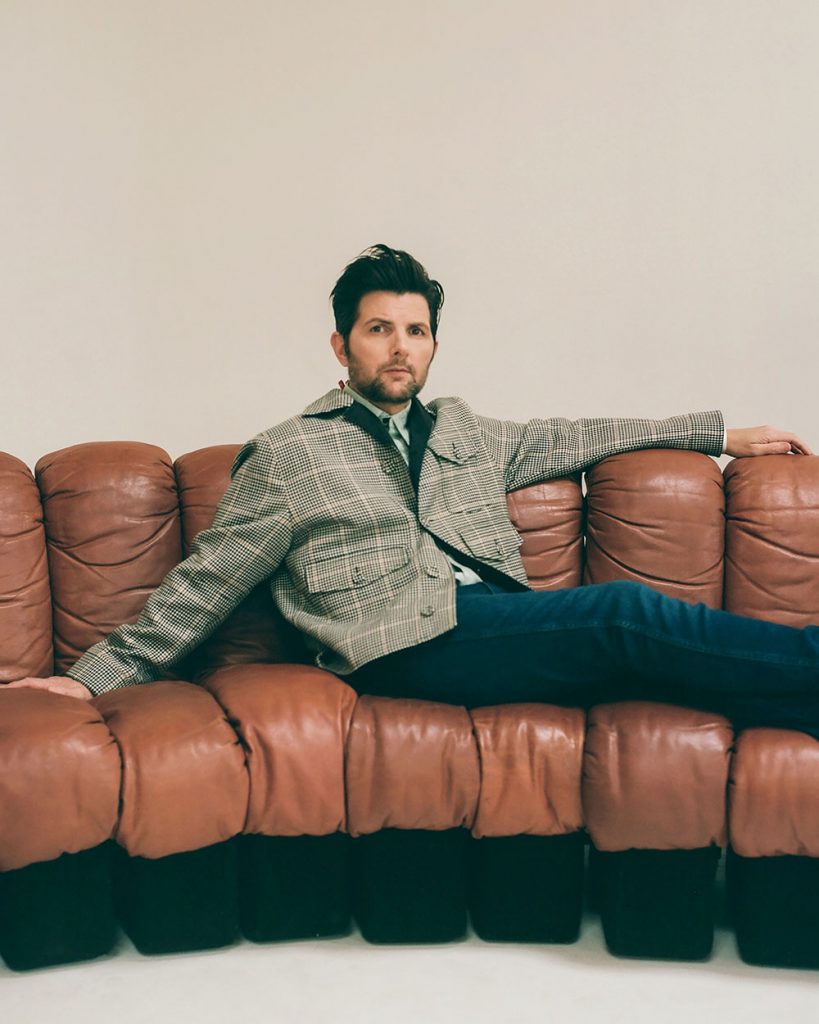
The long gap between Party Down and its revival has also allowed the series to drum up an enthusiastic cult following. Scott recalls that the original 2010 series finale attracted next to no one: some 13,000 viewers. The show had its share of admirers within Hollywood, who surely recognized something of the show’s caustic humour and stinging horror. After all, Scott’s turn on Party Down led directly to his role on Parks and Recreation. But now that fanbase has expanded. He’s increasingly recognized for his role as Party Down’s hard-done-by Henry Pollard. “Over the years, people found it,” he says. “It found a home on Netflix, and then Hulu and other streaming services. It just sort of made the rounds. And people discovered it. More and more over the years, people would come up and talk to me about Party Down…That was unexpected, and really lovely.”
Party Down’s revival has yet to receive an air date. And Severance’s legions of diehard fans will also be kept in suspense for at least a while longer. (Ben Stiller confirmed only recently that a second season has been greenlit.) But Scott himself isn’t much for downtime. He’ll appear opposite Maya Rudolph in her new sitcom, Loot. In it, Rudolph plays the recently divorced billionaire Molly Novak, who is trying to readjust after her smug and super-rich husband cheats on her. Scott, meanwhile, plays the husband: a heightened, cartoonish version of a whole generation of Silicon Valley tech bros.
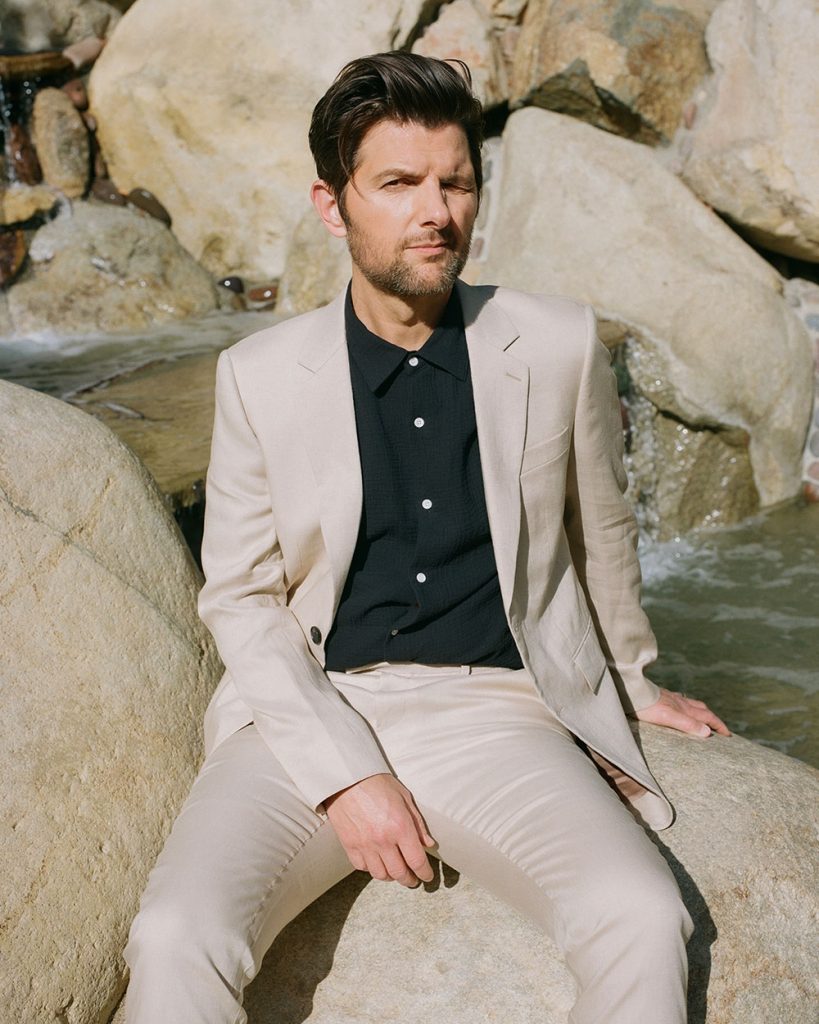
Following his more nuanced, all-consuming actorly turn in Severance, Scott sees Loot as a “tone-shift.” It was a chance to step back into something closer to straight comedy without having to suffer from anxious pangs that the role might single-handedly overturn his career, or that he sucks. And while Scott does like to play smirking bad guys (look no further than Step Brothers), he acknowledges that even this character has layers. “He does have humanity to him,” the actor insists. “He’s just playing hide-and-seek with that a little bit.”
Scott’s been performing his own hide-and-seek act throughout his career: popping up in seemingly everything, always hinting at fresh angles to his onscreen persona. While still known for — and comfortable with — those straight comedy roles, he’s coming to redefine himself. After his long run on Parks and Recreation, he forced himself back into the rigours of auditioning to try to get more dramatic work. Now, it’s paying off. In his sort-of-double-role as Severance’s Innie and Outie Marks, Scott has found a perfect synthesis: a mix of Henry Pollard and Ben Wyatt, shades of cynical sullenness and boyish irrepressibility.
As he puts it, “It’s the sort of thing that I’ve been spending my whole career earning.” Severance’s viewers — and the critics — agree, fully embracing Scott in all his shades, tones, and variegated weirdness. Now, Adam Scott can breathe a sigh of a relief.
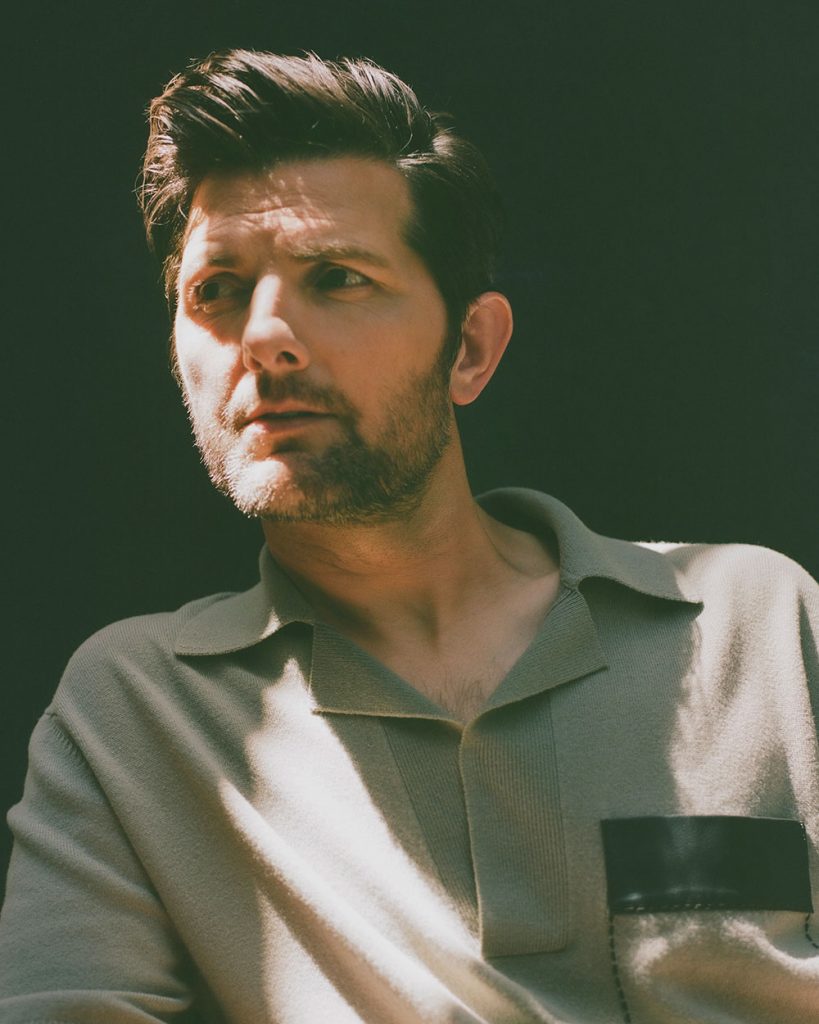
Lead image: Full look by Prada.
Photography: Pat Martin
Styling: Britt McCamey (The Wall Group)
Grooming: Kim Verbeck (The Wall Group)
Photo Assistants: Ethan Delorenzo & Andrew Friendly
Stylist Assistant: Kendall Meleski & Briana Hound
Location: Amsterdam Modern
